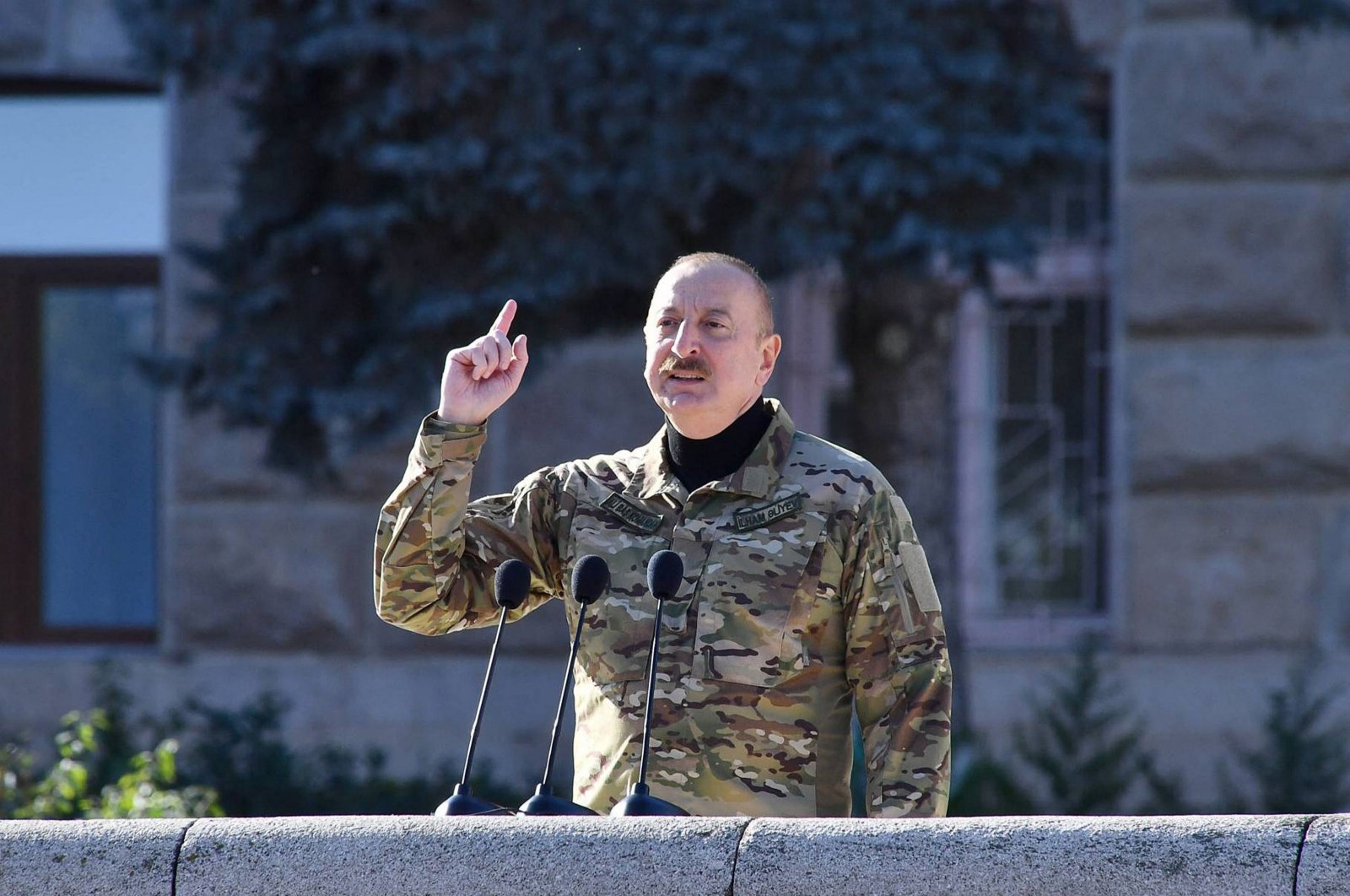
Ilham Aliyev made it clear of Azerbaijan’s displeasure of United States support for Armenia in a call with U.S. Secretary of State Antony Blinken on Monday. Baku said on Tuesday that the Azerbaijani President told Blinken that recent American actions in support of Armenia had jeopardized U.S.-Azerbaijani ties.
The two countries had enjoyed relatively cordial relations until Azerbaijani forces recaptured Karabakh from Armenian separatists in a counterterrorism operation in September.
The U.S. provided diplomatic backing for Armenia, which had supported Karabakh’s separatists and U.S. officials visited Yerevan in the days after the offensive.
In a statement, Aliyev’s office said Aliyev had told Blinken that "the latest statements and actions taken by the U.S. have seriously damaged Azerbaijan-U.S. relations.” It said Baku had taken note of comments by Assistant Secretary of State James O’Brien during a congressional hearing that there was "no chance of business as usual” with Azerbaijan after the offensive in Karabakh.
However, it added that Aliyev and Blinken had agreed, in the interest of normalizing ties, that O’Brien would visit Baku and Washington would lift a ban on senior Azerbaijani officials visiting the U.S.
Armenia, a traditional ally of Russia, has, in recent months distanced itself from Moscow and sought closer ties with the West.
Last month, Aliyev refused to attend a round of peace talks with Armenian Prime Minister Nikol Pashinyan in Spain over what he said was France’s "biased position.” French President Emmanuel Macron and German Chancellor Olaf Scholz had been scheduled to join EU chief Charles Michel as mediators at those talks. So far, there has been no visible progress in EU efforts to organize a fresh round of negotiations.
The Caucasus neighbors have been locked in a decadeslong conflict for control of Azerbaijan’s Karabakh since 1991, when the Armenian military illegally occupied the territory and seven adjacent regions. Most of Karabakh was liberated by Azerbaijan during a war in the fall of 2020, which ended after a Russian-brokered peace agreement and also opened the door to normalization. This September, the Azerbaijani army initiated a counterterrorism operation in Karabakh to establish constitutional order in the region, after which illegal separatist forces in the region surrendered.
Azerbaijan, having now established full sovereignty in the region, has reiterated its call on the Armenian population in Karabakh to become part of Azerbaijani society.
The sides have sought to end their conflict with a peace deal, but progress has been slow. Baku and Yerevan last held talks in Tehran last month at a meeting attended by representatives from Türkiye and Russia. In late October, Pashinyan said a peace agreement would be signed "in the coming month.” The EU and the U.S. have made their own efforts to mediate a peace agreement between the two sides. Russia, the traditional power broker in the region, has seen its role diminish since it invaded Ukraine in February 2022. Both Russia and Iran, who have backed Armenia in the conflict, are against European and U.S. interference in tensions between the South Caucasus rivals. They have called for a peaceful settlement of disputes, respect for sovereignty, political independence, territorial integrity and non-interference in internal affairs.
